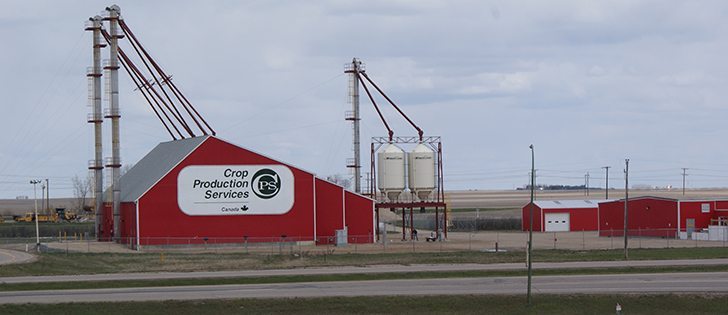Agrium must divest these retail stores:
A new king has finally been crowned in Western Canada’s crop input business.
On Oct. 1, Agrium Inc. announced it had completed the acquisition of 217 retail outlets from Viterra Inc.
The $300 million deal was originally announced on March 20, 2012, but it couldn’t be consummated until the Competition Bureau gave its blessing, which happened Sept. 5.
With 270 outlets, Agrium is now the biggest retailer of crop input products on the Prairies, with slightly more than the 258 Viterra owned in its prime. The deal gives the fertilizer company about a 35 percent share of Western Canada’s crop input business.
Read Also

Manitoba extends Crown land rent freeze
Manitoba government links the continued rental rate freeze on grazing and forage leases to economic and environmental challenges facing the industry
“What we focus on in Agrium retail is not how big we are. It’s how good we are,” said Kevin Helash, managing director of Agrium Retail Canada.
“Our focus will continue to be on servicing our customers in Western Canada. That’s our top priority.”
Viterra president Kyle Jeworski said the sale ushers in a new era of crop input retailing in Western Canada.
“Now there’s going to be a fundamental shift in the industry,” he said during a recent interview at Ag West Bio Inc.’s annual meeting.
“By my rough calculations, there will be about 75 percent of the ag retail industry that will not be tied to grain related assets.”
Not that long ago, grain companies were keen on providing one-stop services for farmers. They wanted to build integrated businesses that provided seed to growers in the spring, bought it in the fall and helped them with everything in between.
That philosophy has undergone a 180-degree change at Viterra since its purchase by Glencore Xstrata last year. As of Oct. 1, the grain company is completely out of the retail business.
“There’s arguments on both sides, but we want to make sure we stay focused on the grain,” said Jeworski.
“But we can still be involved in the ag (retail) space with partnerships and agreements with various players.”
Agrium will be busy rebranding the Viterra assets with Crop Production Services signs through October.
But not all of the assets will receive new signage. The Competition Bureau concluded the acquisition of Viterra’s assets would lead to a “substantial lessening or prevention” of competition in retail sales of urea and anhydrous ammonia in certain areas of Alberta and Saskatchewan.
The bureau ordered Agrium to sell six retail stores in Alberta and one in Saskatchewan.
“We’re going to work to get that accomplished as soon as possible, keeping in mind that we want to ensure our customer supply for the fall season is not disrupted,” said Helash.
In addition, Agrium has been instructed to divest six anhydrous ammonia businesses in Saskatchewan and three in Alberta and to supply anhydrous to any purchaser of the divested assets for up to four years at prices not to exceed what it charges its own retail outlets in those two provinces.
The remaining 210 Viterra outlets will be painted green next spring to match Agrium’s Crop Production Services stores.
Helash said Viterra’s former customers will now have access to Agrium’s Loveland brand of crop protection products while Agrium’s customers will be able to get their hands on Viterra seed.
“We will have access to, I would say, the best private proprietary seed lineup in the industry,” he said.
At the time the deal was first announced, there was anxiety about the potential lack of competition in the fertilizer business.
Independent retailers said they were uneasy that a major supplier of their fertilizer product was becoming so aggressive on the retail side of the business.
GROW Community of Independents was contacted for this story but did not return calls in time for Western Producer’s deadlines.
Helash said the Competition Bureau has conducted a thorough review and took steps to ensure robust competition remains in the industry.
“Two-thirds of the market will still be supplied by our competitors, which is lots of competition,” he said.
Agrium expects Viterra’s retail assets will contribute $75 to $90 million to its annual earnings before interest, taxes, depreciation and amortization (EBITDA), excluding synergies and integration costs. The company anticipates synergies amounting to between $15 and $20 million by the end of 2015.
The deal with Viterra includes 13 retail locations in Australia, which were acquired in June.
- CPS Bow Island
- CPS Eaglesham
- CPS Lacombe
- Viterra Alix
- Viterra Alliance
- Viterra Vauxhall
- CPS-Canora
- CPS-Kinistino
- CPS-North Battleford
- CPS-Prince Albert
- CPS-Yorkton
- Viterra-Cudworth
- Viterra-Camrose
- Viterra-Craddock
- Viterra-Medicine Hat
















